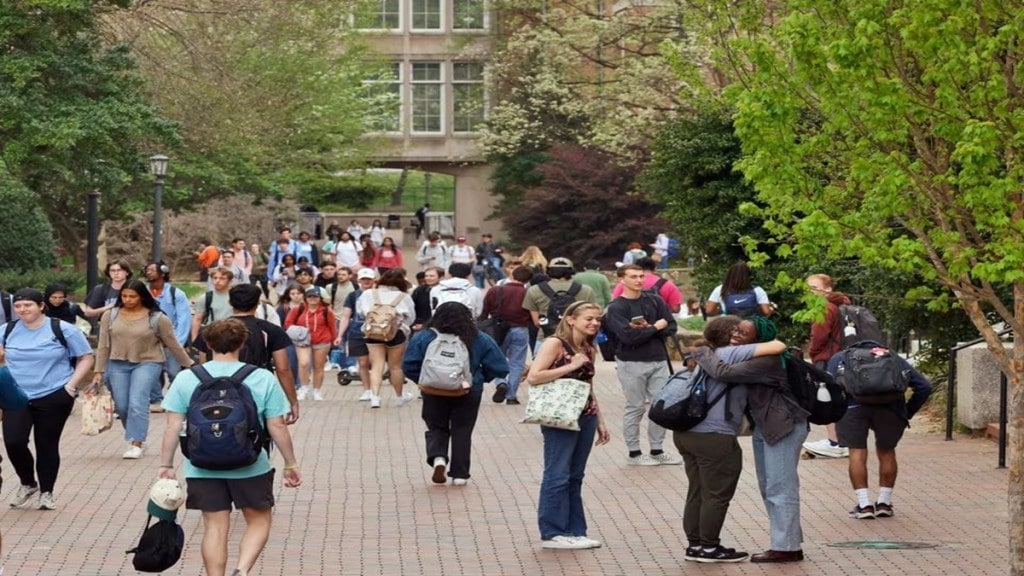India’s students are increasingly choosing to study abroad to enhance their career prospects. Indian students are now studying in 240 countries globally, with Canada, Australia, the UK, and the US being the top choices, according to the Ministry of External Affairs. The number of Indians studying abroad increased from 4.5 lakh in 2017 to 5.86 lakh in 2019, but the pandemic reduced this to 2.6 lakh in 2020.
The tide turned again and Indians going abroad for higher education touched a six-year high in 2022 at over 7.5 lakh. According to the data provided in the Lok Sabha, the proportion of Indian students studying abroad rose by 68.79% in 2022.
In spending terms, Indian students spent around US$47 billion on study abroad in 2022, with growth rates predicting it to reach US$70 billion by 2025.
Players in the study abroad sector await Finance Minister Nirmala Sitharaman’s announcement of some positive measures in the interim Budget 2024–25, which is scheduled to be introduced in the Lok Sabha on February 1. Here are some industry voices:
Sachin Jain, Country Manager, India, and South Asia, ETS – Educational Testing Service, (owners of TOEFL & GRE)
As we look ahead to the upcoming budget for 2024, ETS urges policymakers to allocate resources that accelerate the global mobility of India’s young talent. This includes the inclusion of language skills and internationally recognized work skill certifications in Indian classrooms.
Skills development enterprises, both public and private, must leverage globally benchmarked and recognized skills frameworks and certifications as these are valued by employers internationally.
Policymakers should also look at comprehensive merit scholarship programs for deserving Indian students for postgraduate and research studies in foreign universities to drive research and innovation in India post-completion of their studies.
Manisha Zaveri, Joint Managing Director, Career Mosaic- (Leading South Asian recruiting firm for study aboard)
We are anticipating the upcoming budget’s potential to unlock new opportunities for international student mobility, we are optimistic about the potential of initiatives fostering collaboration between Indian and international universities, creating avenues for cross-cultural learning and research opportunities. A budget that prioritizes global education will not only empower the vibrant minds of young Indians but also solidify India’s standing in STEM fields.
With the Indian study abroad, sector poised for a post-pandemic resurgence, the upcoming budget holds immense significance. We expect the government to recognize and harness this potential by implementing measures to make international education more accessible and affordable.
This could involve targeted scholarship schemes for Tier 2 and Tier 3 city students, tax benefits for families supporting overseas education, and streamlined visa processes. A supportive budget addressing these aspects will not only enable students to pursue their international education dreams but also contribute significantly to India’s long-term economic and intellectual growth.
Saurabh Arora, CEO, University Living – (A global student housing managed marketplace that assists students seeking higher education)
In anticipation of the upcoming budget, we at University Living want to draw the government’s attention to essential measures that can profoundly impact Indian students pursuing education abroad. We feel an increase in the fund allocation especially to the higher education sector will be welcomed by the expanding student community in India.
Foremost, we believe lower interest rates on education loans will be a crucial step in alleviating financial burdens for students and their families, enhancing access to education in a destination of one’s choice.
Further, there is a critical need for an increase in grants and scholarships for Indian students, providing essential financial support to deserving students. Scholarships play a transformative role, offering support and opportunities for talented students facing financial constraints, to successfully pursue their academic journey.
Lastly, exploring student concessions on air travel is imperative to make global education economically viable for a broader demographic of students, fostering cultural exchange and elevating India’s representation on the global academic stage.
In summary, we hope these comprehensive budgetary considerations aim to create a more supportive environment for Indian students undertaking international education, fostering academic growth, and contributing to India’s global educational standing.
